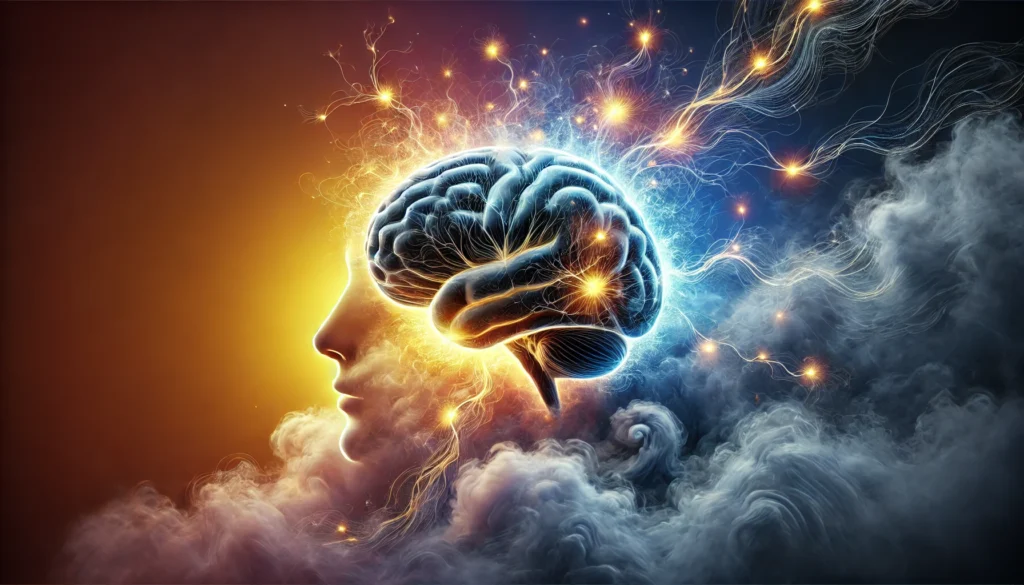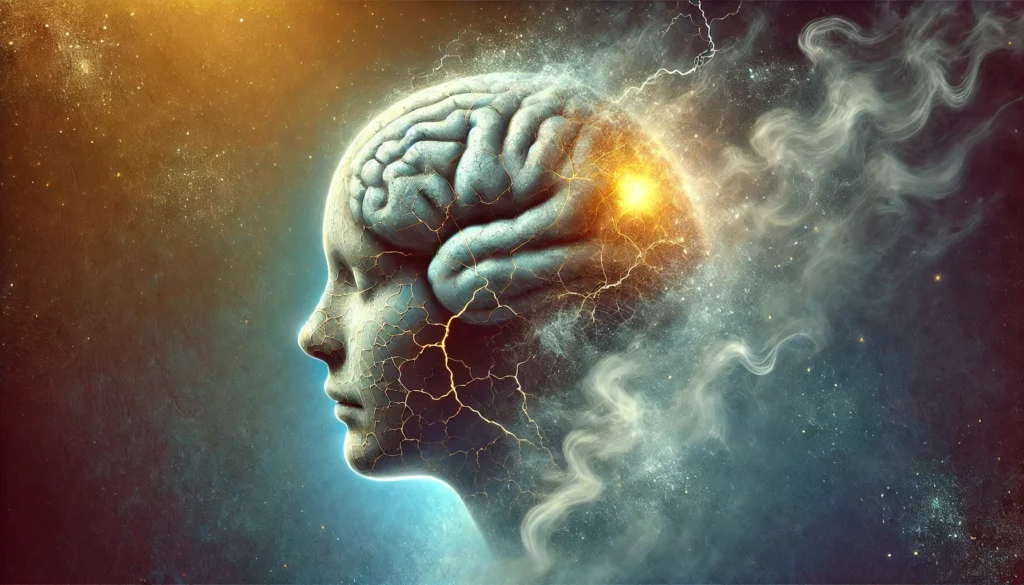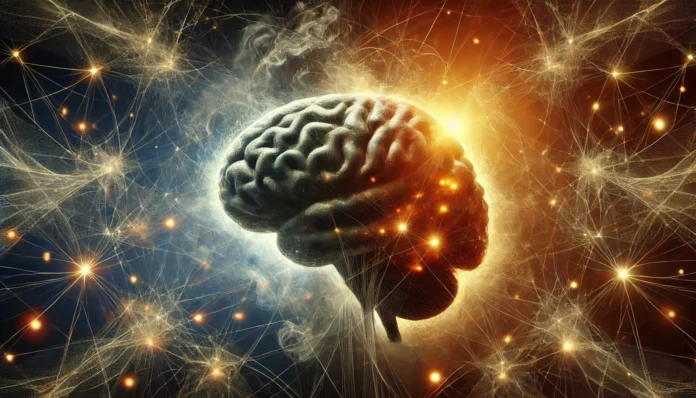Understanding the Impact of Mental Illness on the Brain
Mental illness is a complex and multifaceted issue that affects millions of people worldwide. While its psychological and emotional consequences are widely recognized, its impact on the brain’s structure and function is equally significant. Advances in neuroscience have provided critical insights into how mental illness alters brain chemistry, neural pathways, and cognitive abilities. Understanding these changes is essential for developing effective treatments and promoting long-term cognitive health and longevity. By exploring how mental illness affects the brain, we can foster awareness, reduce stigma, and support more effective interventions.
You may also like : Best Things for Brain Health: Expert-Backed Strategies to Keep Your Mind Sharp
Structural Changes in the Brain Due to Mental Illness
One of the most profound effects of mental illness on the brain is the alteration of its structure. Neuroimaging studies have shown that conditions such as depression, anxiety, schizophrenia, and bipolar disorder can lead to changes in brain volume, density, and connectivity. For example, individuals with major depressive disorder often exhibit a reduction in the size of the hippocampus, a region crucial for memory and learning. Similarly, schizophrenia is associated with reduced gray matter volume in the prefrontal cortex, which plays a key role in decision-making and impulse control. These structural changes can lead to cognitive impairments, affecting an individual’s ability to process information, regulate emotions, and maintain focus.
Furthermore, prolonged mental illness can alter white matter integrity, disrupting the communication between different brain regions. This can contribute to symptoms such as disorganized thinking, impaired memory, and difficulties in social interactions. Chronic stress, a common factor in many mental health conditions, has been shown to reduce the size of the amygdala, the brain’s fear-processing center, leading to heightened anxiety and emotional dysregulation. Understanding these structural changes highlights the need for early intervention and long-term management strategies to protect brain health.
Neurochemical Imbalances and Their Role in Mental Illness
The brain relies on a delicate balance of neurotransmitters to regulate mood, cognition, and behavior. Mental illness often disrupts this balance, leading to significant neurochemical imbalances. For example, depression is commonly linked to low levels of serotonin and norepinephrine, neurotransmitters that influence mood and stress response. This deficiency can result in persistent feelings of sadness, fatigue, and loss of interest in daily activities. Similarly, dopamine dysregulation is a key factor in schizophrenia, affecting motivation, reward processing, and perception.
Anxiety disorders are often associated with an overactive amygdala and an imbalance in gamma-aminobutyric acid (GABA), a neurotransmitter that helps regulate anxiety levels. When GABA levels are low, individuals may experience excessive worry, panic attacks, and heightened stress responses. Understanding these neurochemical imbalances has led to the development of targeted medications, such as selective serotonin reuptake inhibitors (SSRIs) for depression and benzodiazepines for anxiety. However, medication alone is not always sufficient, highlighting the importance of comprehensive treatment approaches that include therapy, lifestyle modifications, and stress management techniques.

The Impact of Mental Illness on Cognitive Function
Cognitive function encompasses a range of mental abilities, including memory, attention, problem-solving, and decision-making. Mental illness can significantly impair these functions, leading to difficulties in daily life and professional settings. Depression, for instance, is often accompanied by cognitive slowing, making it challenging for individuals to concentrate, retain information, and make decisions. This cognitive impairment can persist even after mood symptoms improve, affecting long-term productivity and quality of life.
Schizophrenia is particularly debilitating in terms of cognitive function, as it can impair working memory, executive function, and verbal communication. Individuals with bipolar disorder may also experience cognitive fluctuations, with episodes of mania leading to impulsivity and poor judgment, while depressive episodes result in sluggish thinking and difficulty processing information. Addressing these cognitive challenges requires a combination of pharmacological treatments, cognitive-behavioral therapy, and cognitive training exercises designed to enhance neural plasticity and resilience.
Mental Illness and Its Effects on Longevity
Research has shown that individuals with severe mental illnesses tend to have a reduced life expectancy compared to the general population. This is due to a combination of factors, including increased susceptibility to chronic diseases, higher rates of substance abuse, and reduced access to healthcare. Conditions such as depression and schizophrenia have been linked to higher rates of cardiovascular disease, diabetes, and metabolic disorders. The chronic stress associated with mental illness can lead to increased inflammation, which plays a role in aging and the development of age-related diseases.
Moreover, lifestyle factors such as poor diet, lack of physical activity, and sleep disturbances contribute to a decline in overall health and longevity. Many individuals with mental health disorders also face barriers to medical care, resulting in untreated physical conditions that exacerbate their health risks. Addressing these issues requires an integrative approach that combines mental health treatment with proactive physical healthcare, ensuring that individuals receive comprehensive support for both their mental and physical well-being.
Strategies for Enhancing Cognitive Health in Individuals with Mental Illness
Maintaining cognitive health despite the challenges of mental illness requires a multifaceted approach. Cognitive training exercises, such as memory games and problem-solving activities, can help improve brain function and build resilience. Regular physical exercise has been shown to enhance neuroplasticity by promoting the growth of new neurons and strengthening existing neural connections. Activities such as yoga and mindfulness meditation can also help regulate stress responses, reducing the negative impact of mental illness on brain function.
Dietary interventions play a crucial role in supporting brain health. Nutrient-rich foods, such as omega-3 fatty acids, antioxidants, and B vitamins, can enhance cognitive function and protect against neurodegeneration. Adequate sleep is also essential for brain health, as it allows for memory consolidation and the removal of toxins that accumulate during waking hours. Individuals with mental health conditions should prioritize good sleep hygiene, such as maintaining a consistent sleep schedule and reducing screen time before bed.

The Role of Early Intervention and Ongoing Support
Early detection and intervention are critical in mitigating the impact of mental illness on the brain. Recognizing the early signs of mental health disorders, such as changes in mood, sleep disturbances, and cognitive decline, can facilitate timely treatment and prevent long-term damage. Therapy, including cognitive-behavioral therapy (CBT) and psychotherapy, can help individuals develop coping strategies and improve emotional regulation.
Support networks, including family, friends, and mental health professionals, play a vital role in recovery. Encouraging open conversations about mental health can reduce stigma and encourage individuals to seek help without fear of judgment. Workplace accommodations, such as flexible schedules and mental health days, can also provide necessary support for those managing mental health conditions while maintaining professional responsibilities.
Frequently Asked Questions About How Mental Illness Affects the Brain
1. How does mental illness alter brain function over time?
Mental illness can cause progressive changes in brain function, affecting neural pathways responsible for cognition, emotion, and behavior. Over time, prolonged exposure to stress hormones, such as cortisol, can weaken the brain’s ability to regulate mood and memory. This can lead to difficulties in concentration, emotional instability, and impaired decision-making. The brain’s plasticity allows it to adapt, but in cases of chronic mental illness, maladaptive changes can become deeply ingrained, making recovery more challenging. Early intervention, cognitive therapies, and neuroplasticity-enhancing activities like mindfulness and brain training exercises can help counteract these effects.
2. Can mental illness physically shrink areas of the brain?
Yes, research has shown that severe and prolonged mental illness can lead to brain atrophy in certain regions. The hippocampus, which is essential for memory formation, is often found to be smaller in individuals with chronic depression or post-traumatic stress disorder. The prefrontal cortex, which governs reasoning and impulse control, may also shrink in cases of schizophrenia or bipolar disorder. These changes in brain volume are associated with cognitive impairments and emotional dysregulation. However, therapies such as medication, exercise, and cognitive training have shown promise in reversing or mitigating these effects over time.
3. How does chronic stress contribute to mental illness and brain health?
Chronic stress triggers an overproduction of cortisol, which can have toxic effects on brain cells. Long-term exposure to high cortisol levels disrupts neural connections, particularly in areas associated with memory and emotional regulation. This stress-induced damage can increase the risk of developing anxiety disorders, depression, and even neurodegenerative diseases. Additionally, chronic stress reduces the brain’s ability to generate new neurons, making it harder to recover from mental illness. Managing stress through techniques like meditation, deep breathing exercises, and regular physical activity is crucial for maintaining mental brain resilience.
4. What role do neurotransmitters play in mental illness?
Neurotransmitters are chemical messengers that regulate mood, cognition, and behavior. Imbalances in neurotransmitters like serotonin, dopamine, and GABA are common in various mental illnesses. For example, low serotonin levels are linked to depression and anxiety, while excessive dopamine activity is associated with schizophrenia. These imbalances disrupt communication between neurons, leading to symptoms such as mood swings, paranoia, and cognitive dysfunction. Medications such as antidepressants and antipsychotics aim to restore neurotransmitter balance, but lifestyle changes like diet and sleep also play a crucial role in optimizing mental brain function.
5. How does sleep affect brain health in individuals with mental illness?
Sleep is vital for cognitive function, emotional stability, and neural repair. Individuals with mental illness often experience sleep disturbances, which can exacerbate symptoms and impair brain function. Poor sleep quality affects memory consolidation, emotional processing, and problem-solving abilities. Chronic sleep deprivation can also increase inflammation in the brain, worsening conditions such as depression and anxiety. Establishing a consistent sleep routine, reducing screen exposure before bed, and practicing relaxation techniques can help improve sleep and overall mental brain health.
6. Is it possible to reverse brain damage caused by mental illness?
While some changes in brain structure due to mental illness may be persistent, the brain’s ability to adapt and recover—known as neuroplasticity—offers hope for healing. Engaging in cognitive exercises, learning new skills, and maintaining social connections can help stimulate neural regeneration. Certain medications and lifestyle interventions, such as exercise and proper nutrition, have been shown to promote brain repair. While complete reversal of brain damage may not always be possible, significant improvements in cognitive function and emotional stability can be achieved with comprehensive treatment strategies.
7. Can mental illness increase the risk of developing neurodegenerative diseases? Research suggests that individuals with long-term mental illness may have an increased risk of developing neurodegenerative diseases like Alzheimer’s and Parkinson’s. Chronic inflammation, oxidative stress, and neurotransmitter imbalances associated with mental illness can accelerate brain aging. Additionally, conditions like depression and schizophrenia have been linked to an increased likelihood of cognitive decline in later years. Preventive measures, including brain-stimulating activities, a healthy diet rich in antioxidants, and regular medical check-ups, can help mitigate these risks and support long-term cognitive health.
8. How does diet influence brain function in people with mental illness?
Diet plays a critical role in brain health, as certain nutrients directly impact neurotransmitter production and inflammation levels. Omega-3 fatty acids, found in fish and flaxseeds, support cognitive function and reduce symptoms of depression. B vitamins are essential for maintaining a healthy nervous system, while antioxidants help protect brain cells from damage. Processed foods high in sugar and unhealthy fats can contribute to mood swings and cognitive impairment. A balanced diet rich in whole foods can improve mental illness brain function and overall well-being.
9. What are the long-term effects of untreated mental illness on the brain?
Leaving mental illness untreated can lead to severe consequences for brain function and overall health. Chronic conditions like depression and anxiety can cause ongoing neural deterioration, reducing the brain’s ability to adapt and process emotions effectively. Long-term untreated schizophrenia may result in further cognitive decline and social withdrawal. Untreated mental illness also increases the risk of co-occurring conditions such as cardiovascular disease and diabetes, further impacting brain health. Seeking professional help early can prevent these long-term effects and improve both mental and physical well-being.
10. How can individuals support their mental brain health while managing a mental illness?
Managing mental illness requires a holistic approach that prioritizes both medical treatment and lifestyle adjustments. Regular physical exercise enhances neuroplasticity and reduces stress-related brain damage. Engaging in creative activities, learning new skills, and maintaining social connections can help strengthen cognitive function. Mindfulness practices and therapy can improve emotional regulation and resilience. By taking a proactive approach to mental brain health, individuals can better manage their condition and improve their quality of life over time.

Conclusion: Prioritizing Brain Health for Mental Well-Being
Understanding how mental illness affects the brain is essential for developing effective treatments and promoting long-term cognitive health. Structural changes, neurochemical imbalances, and cognitive impairments highlight the profound impact of mental health disorders on brain function. However, proactive strategies, including early intervention, lifestyle modifications, and ongoing support, can help individuals manage their conditions and improve their overall well-being. By fostering awareness and advocating for comprehensive mental health care, we can work toward a future where individuals with mental illness receive the support they need to lead fulfilling and healthy lives.
brain health and cognition, neurological effects of mental illness, cognitive decline and mental health, brain structure changes, neurotransmitter imbalances, mental health and aging, neuroplasticity and mental illness, stress and brain function, depression and brain chemistry, anxiety and cognitive function, schizophrenia and neural pathways, bipolar disorder and brain health, emotional regulation and the brain, memory loss and mental illness, lifestyle impact on brain health, sleep and cognitive function, diet for mental well-being, chronic stress and neurodegeneration, mental wellness strategies, brain resilience and recovery
Further Reading:
What is brain health and why is it important?
The neuroscience of mental illness: Building toward the future
Can Your Mental Health Affect Your Longevity?
Disclaimer
The information contained in this article is provided for general informational purposes only and is not intended to serve as medical, legal, or professional advice. While Health11News strives to present accurate, up-to-date, and reliable content, no warranty or guarantee, expressed or implied, is made regarding the completeness, accuracy, or adequacy of the information provided. Readers are strongly advised to seek the guidance of a qualified healthcare provider or other relevant professionals before acting on any information contained in this article. Health11News, its authors, editors, and contributors expressly disclaim any liability for any damages, losses, or consequences arising directly or indirectly from the use, interpretation, or reliance on any information presented herein. The views and opinions expressed in this article are those of the author(s) and do not necessarily reflect the official policies or positions of Health11News.


